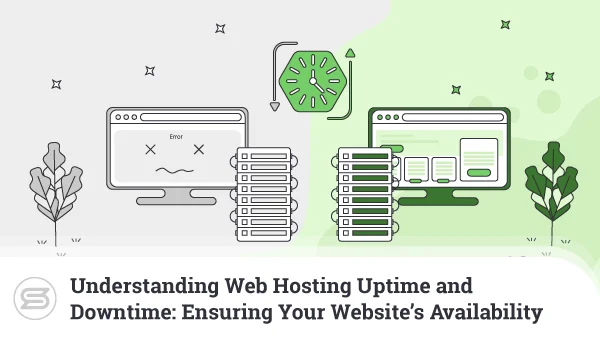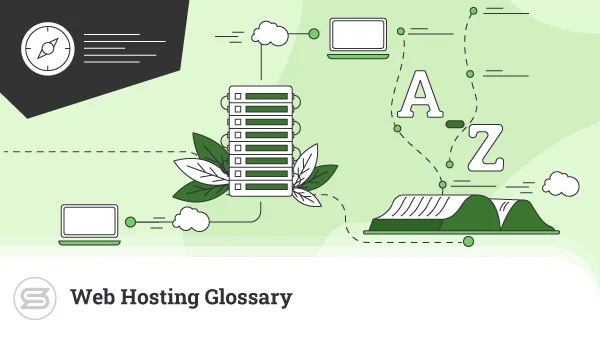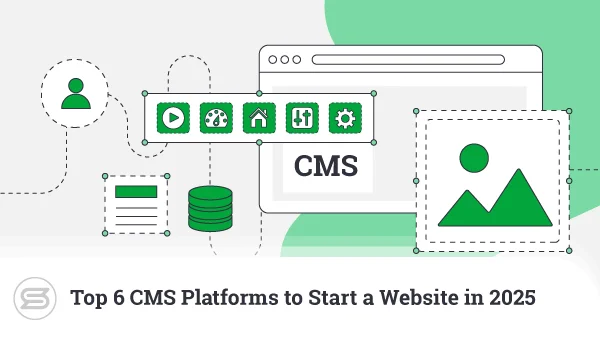Hidden Costs of Free Web Hosting: Why Investing Matters
Everybody loves free stuff. It’s no different when it comes to web hosting services.
But what if we tell you that those seemingly free plans will end up costing you more than paid packages?
That’s right. A plethora of hidden fees and limitations can significantly impact your website’s performance, credibility, and long-term success. Which is the opposite of what you want.
But we’ve got you. In this article, we’ll discuss the hidden costs of free web hosting and why investing in a premium account matters.
Ready?
Introduction to Free Web Hosting
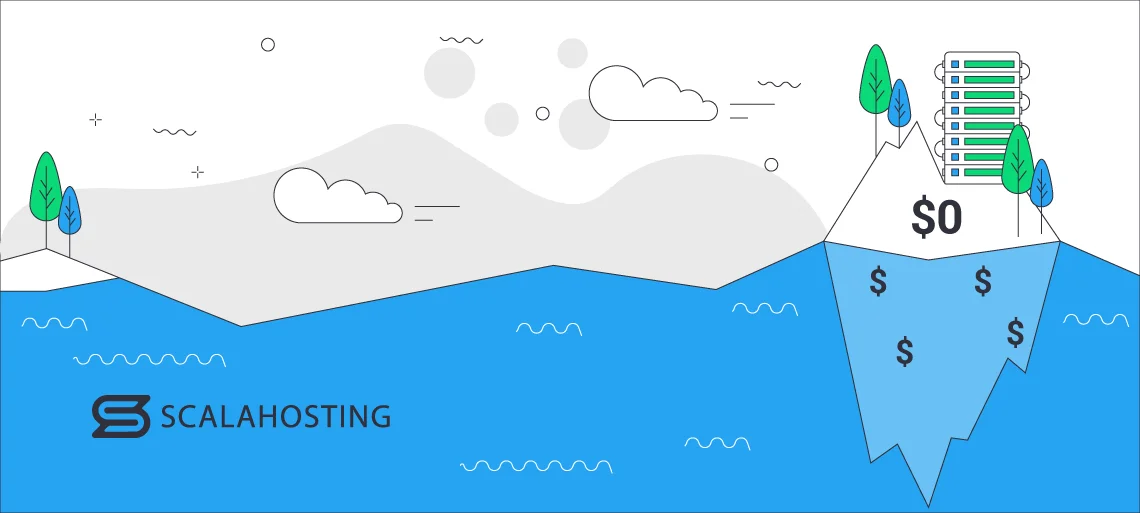
Free web hosting is a service that allows individuals or businesses to host a website without paying a dime. In theory, it’s an affordable option, catering to beginners and budget-conscious users.
However, understanding the long-term implications is crucial, as free hosting comes with a range of limitations that extend beyond the lack of upfront costs. This can include performance issues, no customer support, an abundance of ads, and more. The results can vary from diminished customer trust and brand image to a complete loss of traffic and audience.
Let’s now get into more details.
Limited Resources and Performance Issues
What draws people to free web hosting is the promise of no recurring monthly or yearly payment.
But do you know what that actually means?
Inherent limitations on critical resources, primarily bandwidth and storage.
Bandwidth is the amount of data that can be transferred between the user’s browser and the server hosting the website. Free hosting services typically impose strict limits to manage server load and operational costs. When these are exceeded – the website becomes inaccessible until the bandwidth resets for the next cycle.
Free hosting plans also limit the amount of data, files, and media that can be stored on the server. Users are often allocated a modest amount of storage space. If you go past this limit – your website will be suspended, or you’ll be forced to upgrade to a paid plan.
Even if that’s not the case, the results will not be good. Your site will be loading slowly, leading to higher bounce rates. This, in turn, will affect your Google ranking and even lead to revenue loss.
But that’s alright because you can always scale, right?
Wrong.
Free hosting services are typically designed to cater to very small websites with limited resource requirements. Scaling is next to impossible as free web hosts are unreliable and often offer paid accounts with a horrific feature-cost ratio. So, if you’re going for flexibility for your online project – you better look somewhere else.
Unprofessional Domain Names
Free web hosting often forces you to use subdomains or names that incorporate the provider’s identity. That’s hardly professional and hurts your brand identity. A good domain name has several benefits. Generally speaking, it:
- instills more trust and credibility in your visitors
- allows for brand consistency across various online platforms
- contributes to better SEO rankings
However, if you want one, you’ll need to pay a fee to a domain registrar. On the other hand, premium hosting packages usually include domain names in the initial cost and come with numerous other goodies.
Intrusive Advertisements
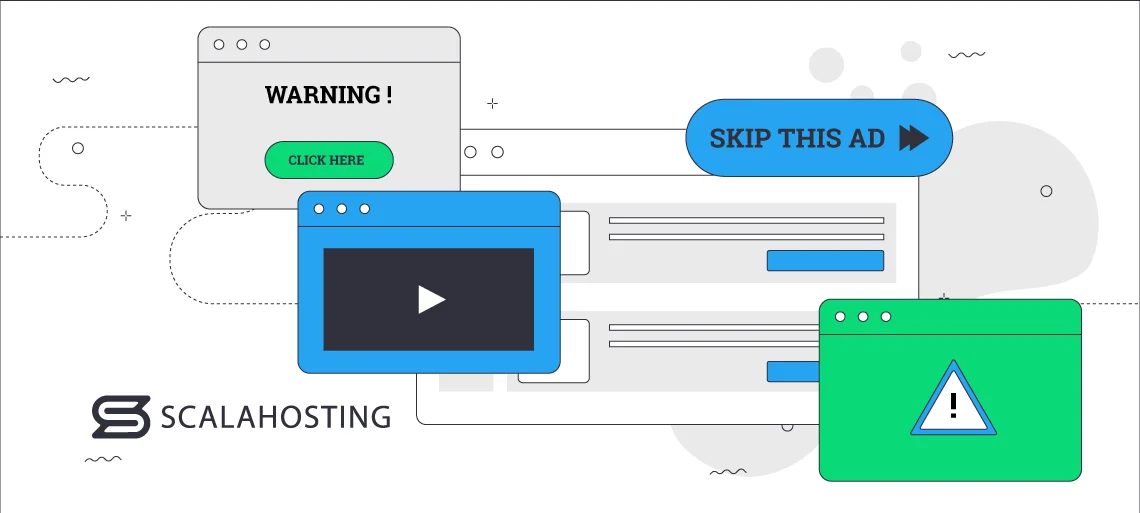
Everybody hates ads. But guess what your website will be flooded with if you choose free web hosting?
That’s right, ads.
It’s how free hosts usually make money. The advertisements may appear as banners, pop-ups, or interstitials, and their placement is often determined by the hosting provider. In some cases, users have limited control over the types of ads displayed on their websites.
As advertisements are prominently placed and designed to attract attention, they can easily distract your visitors from the main content. Not to mention the constant pop-ups disrupting the user experience.
As a result, visitors will see your website as cluttered, slow to load, or difficult to navigate, affecting their overall satisfaction. Chances are, they won’t be buying anything and won’t be coming back.
Lack of Customer Support
Free web hosting services often come with a notable absence of reliable customer support. This is far from great because there is no safety net when there are problems with your website.
No support means you’ll need a certain level of technical expertise to diagnose and resolve issues. You will find yourself spending considerable time researching and implementing potential solutions, leading to increased downtime and overall loss of revenue.
Technical issues can also result in functional limitations, rendering certain features or aspects of the website non-operational. This can impact user engagement and will lead to a decline in repeat visitors or conversions.
Ultimately, all of this might force you to seek professional help, which will cost you money. Or you can pay your free hosting vendor an additional fee for support (if they even offer such). A simple feature that is a given in paid hosting plans.
Limited Design and Customization
We all want a stylish and functional website. Unfortunately, both free and cheap hosting, in general, have huge customization limitations.
Such vendors commonly provide users with a selection of pre-designed templates and layouts. Your options will be restricted in terms of color schemes, fonts, layout structures, and any advanced customizations.
But why does that matter?
Your website design has a huge impact on your business identity and overall user experience. If you can’t fully customize templates, your site will lack individuality and fail to convey a unique brand personality. A generic design won’t leave a lasting impression on users, impacting the likelihood of return visits and conversions.
You have two options – either go for paid hosting or choose a premium template. The latter will give you the necessary design options, but you’ll have to pay a fee. In addition, such themes often require some tech knowledge, so you can tweak them to match your idea. Whichever you choose, though, it won’t be free.
Vulnerability to Security Threats
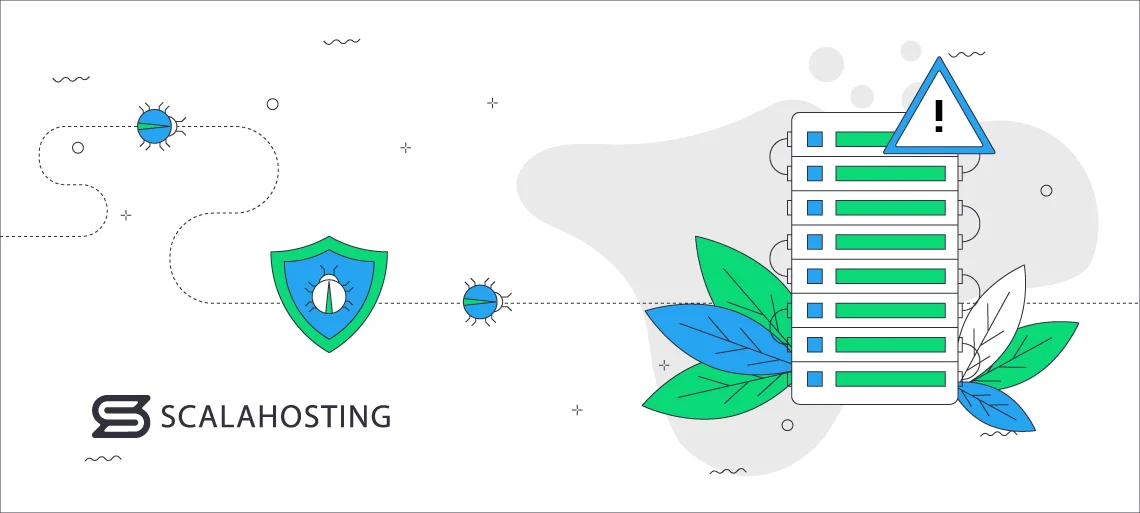
Free hosting environments, while cost-effective, often come with reduced security measures. This means your website will be vulnerable to malware, hacking, and data breaches. This might lead to:
- Unauthorized access to sensitive information
- Identity theft
- Defaced or generally out-of-order website
- Loss of trust in your brand
- Financial losses
And more.
If you’re more tech-savvy, there are some precautions you can take. However, free web hosting accounts often come with severe limitations, preventing you from making any kind of security changes.
To sum up, going with a free host puts you at high risk of breaches and web attacks, something no serious online project deserves.
Unreliable Uptime and Downtime
Free hosting services often come with unscheduled maintenance and no performance guarantees, leading to frequent downtime that can significantly impact user access to your website. And if visitors can’t really look around your website, they are unlikely to try it more than once, right?
Search engines also take website uptime into account when determining search rankings. Frequent downtime will lead to lower rankings, reducing the visibility of your website and limiting organic traffic.
This is bad for all types of businesses, but especially ecommerce. If customers cannot access your pages, they are more than likely to turn to the competition. This will directly impact your revenue streams.
Sure, you can optimize your website, monitor your traffic, use CDNs, and more, but in the end, if the hosting environment is unstable – there’s nothing you can do. You can’t even call the support team, as free hosts rarely offer any assistance or direct contact.
SEO and Search Ranking Challenges
SEO is what you use to get search engines to show your website. Unfortunately, using free hosting services might tamper your efforts.
You see, such plans often come with restrictions that limit the extent to which websites can be optimized for search engines. There’s a high chance you won’t be able to customize metadata or integrate advanced SEO tools due to storage shortage. This reduced visibility makes it challenging for potential visitors to discover your business or blog.
Search rankings are also closely tied to a website’s perceived authority and credibility. And let’s be honest, free hosting doesn’t exactly scream trustworthy.
Because of this, your site’s chances of ranking high are slim to none. You won’t be getting much organic traffic, and your audience won’t be able to grow. As a result, you can’t really compete with other businesses in the same niche.
Loss of Data and Backups
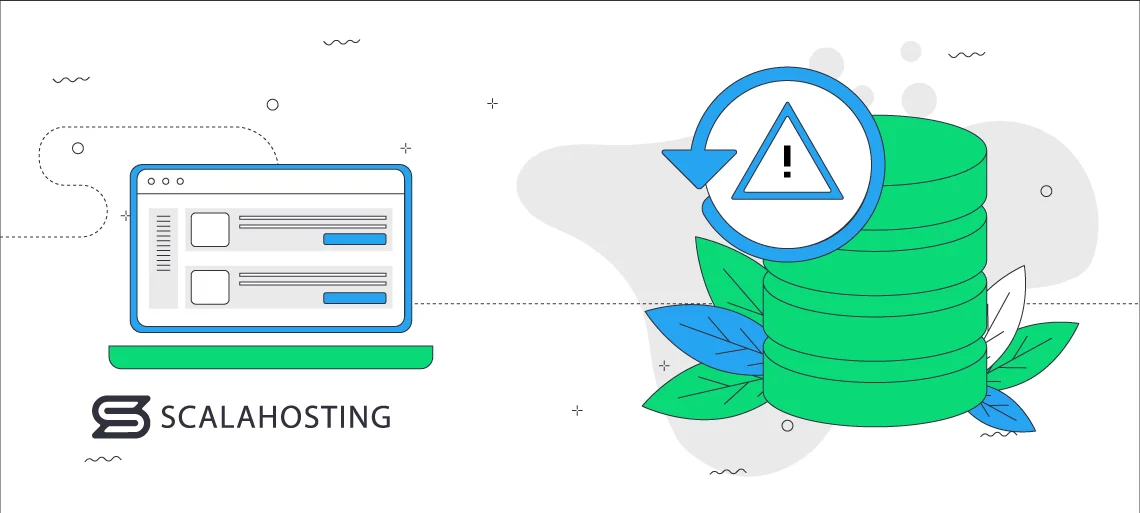
One of the often-overlooked risks associated with free hosting services is the lack of reliable backup options. Such packages either offer limited backup frequency or, in many cases, provide no options at all.
So, if something happens to your website – server failure, hardware malfunction, hacker attack – your data is basically lost forever. And we all know how secure free hosting is…
Sure, there are backup and disaster recovery strategies you can employ on your own. You can also invest in suitable tools and security apps or hire a professional. Those are serious expenses, however. In the end, relying on free hosting will cost you more than subscribing to a paid plan.
Lack of Ownership and Control
Another huge issue of free hosting is the lack of ownership and control.
In simple terms, this means that your website can be suspended or deleted without any notice. If the vendor decides you’re using too much of the resources, your website will be gone. Along with it – all your data.
That’s because the terms and conditions grant the hosting provider significant control over the overall operation of the site. They may impose restrictions, display ads and branding over your content, change policies without notifying you, and more.
So, if you go for free hosting, make sure to carefully review the terms of service to avoid any unpleasant surprises.
Upgrade Costs and Limited Features
Free hosting providers often employ a strategic approach to upsell users to paid plans. While cost-free hosting sounds good on paper, the reality is that unlocking many of the essential features often requires an upgrade to a premium package.
So, be prepared to open your wallet if you want:
- Ad-free content
- More storage and bandwidth
- Personal domain name
- Customer support
- Security features
And so much more.
The truth is that most free hosting providers typically adopt a freemium model. That means they offer basic hosting services at zero cost while reserving advanced capabilities for their paid plans. At one point, when your website starts growing, you’ll be forced to pay to keep it online. In the end, you’ll end up spending way more than you would if you had chosen a premium package in the first place.
The Importance of Investing in Quality Hosting
Investing in reliable hosting is a move that brings numerous benefits in terms of features and will save you money down the road.
Let’s go through the advantages once again:
Paid hosting plans often come with superior infrastructure. They provide increased bandwidth, faster loading times, and better server response. This directly contributes to improved user experience and overall website performance.
Paid vendors also prioritize security. Such providers offer features like firewalls, malware scanning, and SSL encryption. This reduces the risk of cyber threats, data breaches, and potential damage to your website’s reputation.
Premium packages also come with:
- Uptime guarantees
- Scalability options
- Backups
- Customer support
- Custom domain name
Not only that, but you’ll also be avoiding unwanted ads, hidden costs, content limitations, and more.
Hosting Your Website With ScalaHosting
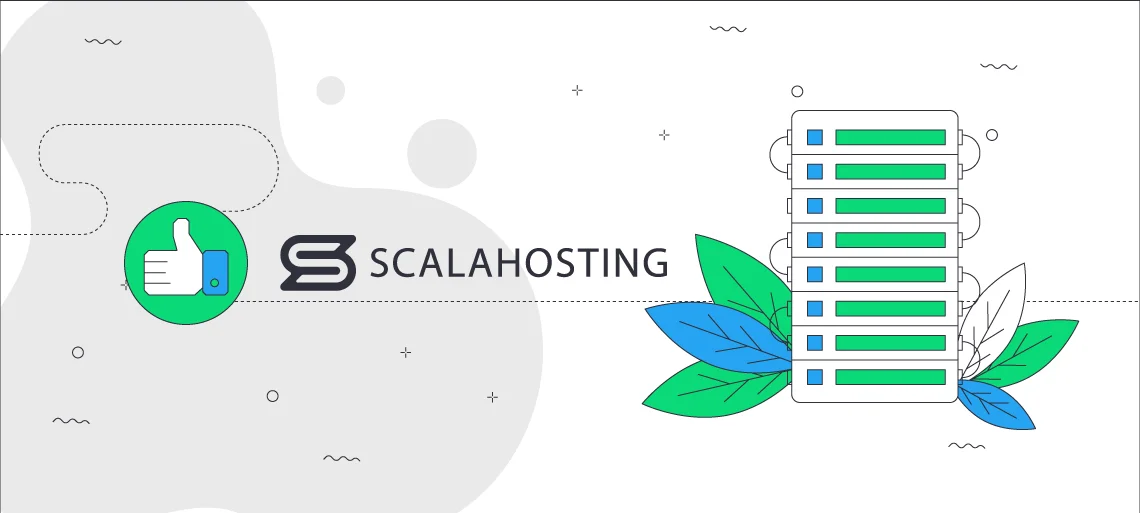
Don’t know where to start with your hosting journey?
Look no further!
ScalaHosting has been in the industry for more than 15 years, and our solutions are designed to fit every need.
By investing in one of our web hosting packages, you get all the benefits of a premium service. Your website will be ad-free, boasting an SSL certificate and its own domain name.
Our tech support team is available 24/7 via chat and email to answer all your hosting queries. They also perform daily off-site backups, so you can rest assured your data is safe.
Speaking of safety, all of our plans include SShield, ScalaHosting’s custom-developed security solution with built-in AI. The tool blocks 99.998% of the attacks before they reach your server and then prepares a report with all the details. SShield is a part of SPanel – our very own hosting management platform. It will help you install apps, monitor resource usage, scale backups, and more.
Our VPS packages bring limitless scalability to the table. We enable users to add or remove resources whenever they see fit.
We’re here to support and encourage your website growth, so we offer all our clients a 99.9% uptime guarantee. Thanks to OpenLiteSpeed, your site can also be lightning-fast and easily accessible.
ScalaHosting offers plans for shared and VPS hosting, DIY and managed services, WordPress, and email subscriptions.
Contact us today to begin your web hosting journey!

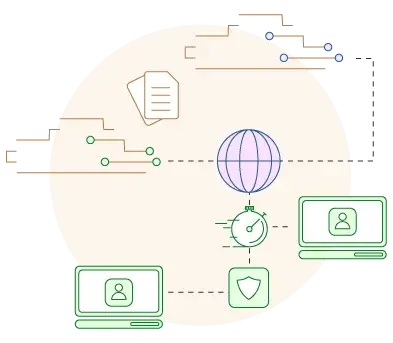
Wrap Up
We get it – free services are tempting. Unfortunately, as with most things in life, the free option usually ends up costing more in the long run.
In terms of web hosting, choosing a free plan will almost surely involve:
- Performance issues
- Unprofessional domain names
- Security threats
- Lack of customer support
- Abundance of ads
And that’s just the tip of the iceberg. In order to fix these issues, you’ll have to pay a fee to either your vendor or an industry professional. The latter rarely comes cheap.
As you can see, there are numerous hidden costs of free web hosting, and that’s why investing matters. Trusting a reputable vendor from the get-go will help you grow your business website headache-free.
FAQ
Q: Is it possible to get free hosting?
A: Yes, it is possible to get free hosting for a website. There are providers that offer no-cost plans with basic features suitable for small personal websites or hobby projects with limited resource requirements. However, such packages often include a subdomain instead of an actual one and come with restrictions on storage, bandwidth, and additional features.
Q: Is free web hosting good?
A: Free web hosting can be an okay choice for specific scenarios, such as personal or very small projects with modest requirements. However, if you have long-term goals or are growing a business-oriented platform, investing in a reliable paid hosting plan will provide the necessary benefits, performance, security, and support. Premium packages are not that expensive nowadays, and building on a stable environment is always the better option.
Q: Is free hosting slow?
A: Yes, free web hosting can be slow. That’s because such plans offer limited resources like bandwidth, storage, and processing power. You will be sharing a server with many other users, leading to abysmal performance and frequent downtimes.
In addition, some free hosting providers display advertisements on websites hosted on their platforms to generate revenue. These ads, along with additional scripts running on the server, contribute to slower page loading times.
Q: Does WordPress do free hosting?
A: WordPress.com offers a Free tier, suitable for beginners and smaller projects, such as personal blogs. The account comes with a subdomain, several themes, brute force protection, etc. However, it also involves tight limits on resources and pesky ads.
Q: Which web hosting is best for beginners?
A: Shared hosting is often considered the best option for beginners. In this environment, multiple users share resources on a single server. This makes it an affordable and user-friendly choice for smaller and newer projects.
However, VPS services are evolving to be the top choice, even for startups and personal projects, offering an isolated environment, scalable resources, and rock-solid security. In case you’re not particularly tech-savvy, you can always go for a managed option and have the support experts take care of the technicalities.

